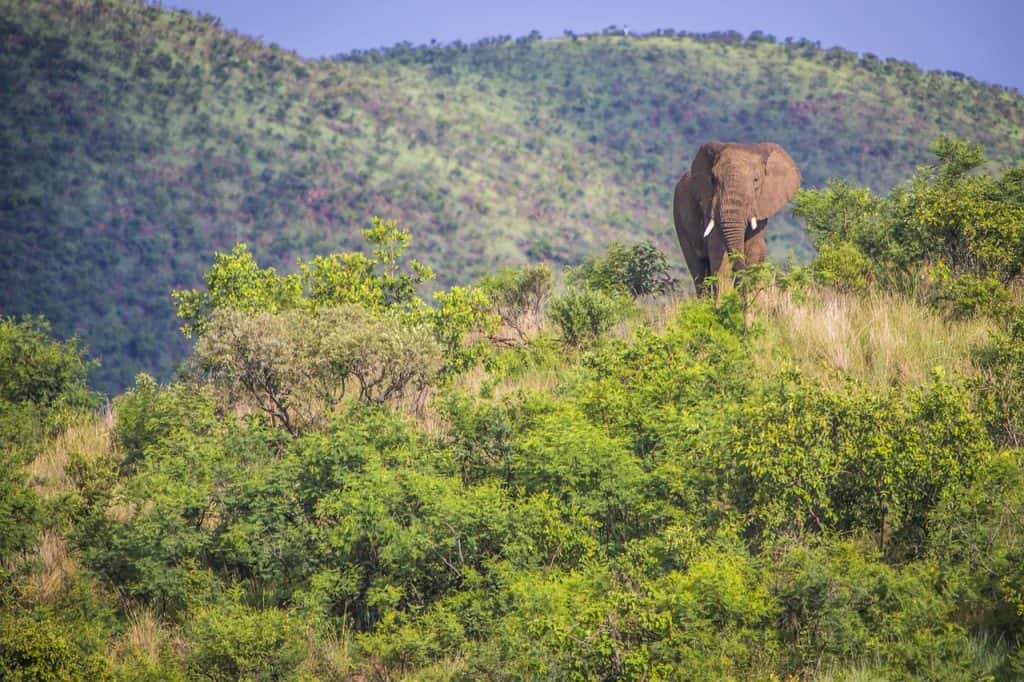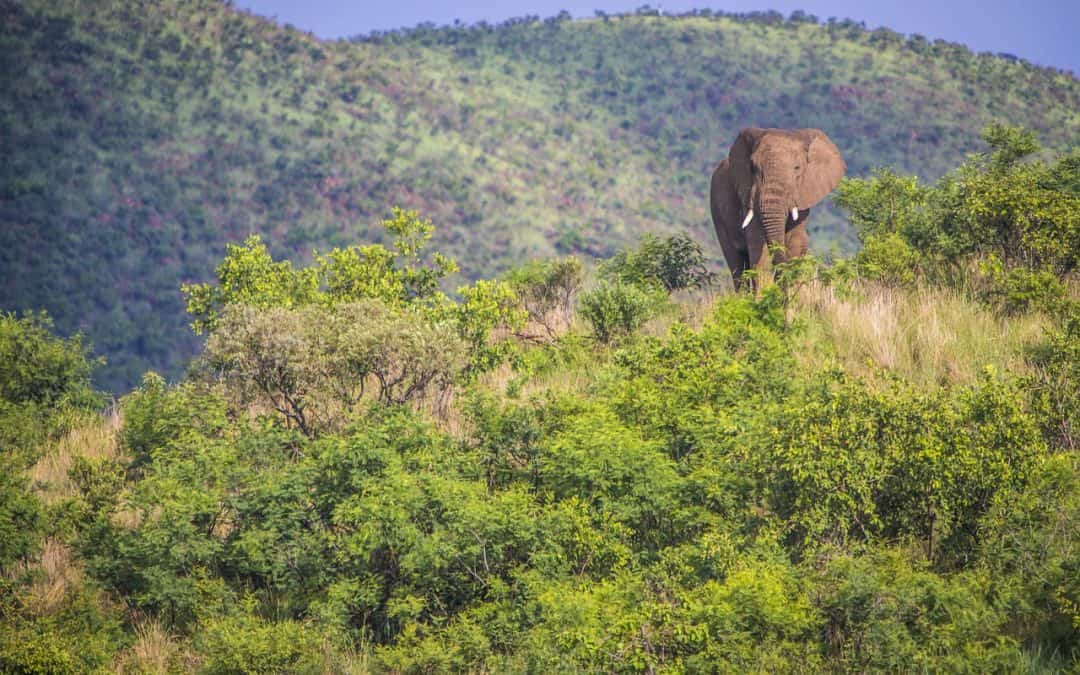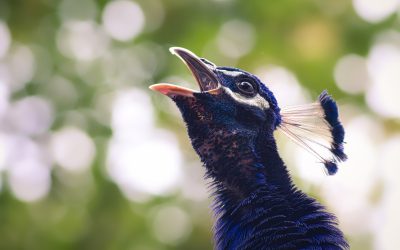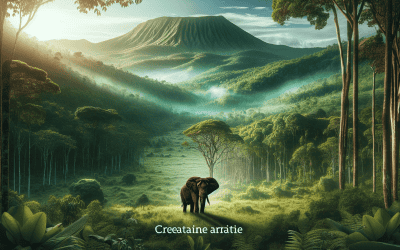Imagine embarking on a thrilling adventure deep within the heart of Dzanga-Sangha Special Reserve, where the air is thick with excitement and the promise of extraordinary encounters awaits at every turn. As you step foot into this untouched wilderness, you enter a realm where nature reigns supreme and the laws of the animal kingdom dictate the rhythm of life. With its dense jungles, winding rivers, and abundant wildlife, this remote corner of the world beckons to the intrepid traveler seeking an unforgettable hunting experience. Amidst the symphony of exotic sounds and the vibrant tapestry of colors, you are about to embark on a journey like no other – a journey into the heart of nature’s endless wonders.

Dzanga-Sangha Special Reserve
Nestled in the heart of the Central African Republic, the Dzanga-Sangha Special Reserve is a true gem of biodiversity. Spanning an impressive 4,822 square kilometers, this protected area is home to a stunning array of wildlife and dense rainforests that have captivated explorers and nature enthusiasts alike. Established in 1990, the reserve was specifically created to safeguard the region’s unique flora and fauna, making it a stronghold for conservation efforts in the African continent.
The Importance of the Reserve
Conservation Efforts
The Dzanga-Sangha Special Reserve plays a crucial role in conservation efforts, particularly in preserving the fragile ecosystems and wildlife species found within its boundaries. The reserve’s management team, in collaboration with local communities and international conservation organizations, has implemented a range of initiatives to protect and restore habitats, combat poaching, and promote sustainable practices.
Protection of Endangered Species
One of the primary reasons for the establishment of the Dzanga-Sangha Special Reserve was to ensure the survival of endangered species. The reserve is home to populations of rare and iconic animals, including forest elephants, western lowland gorillas, and bongo antelopes. By providing a safe haven for these species, the reserve contributes to their long-term survival and contributes to global conservation efforts.
Hunting Regulations
Restrictions and Limitations
To maintain a delicate balance between conservation and sustainable use, the Dzanga-Sangha Special Reserve has put in place strict hunting regulations. These regulations aim to control hunting activities and minimize their impact on wildlife populations and their habitats. Hunting is only allowed within designated areas and is subject to specific rules and limitations.
Permits and Licenses
To engage in hunting activities within the reserve, individuals are required to obtain permits and licenses. These permits are carefully regulated to ensure that only authorized hunters participate in controlled hunting activities. By implementing this system, the reserve aims to maintain a sustainable level of hunting while ensuring that endangered species and their habitats are adequately protected.
Legal Hunting Practices
Regulated Game Species
Hunting in the Dzanga-Sangha Special Reserve is strictly regulated, and only certain game species can be legally hunted. These species are carefully selected based on scientific research and population assessments to ensure their sustainability. Authorized hunters may pursue animals such as forest duikers, bushpigs, and various bird species, following specific hunting seasons and bag limits.
Hunting Methods
While hunting is allowed in the reserve, traditional hunting methods that pose a significant threat to wildlife, such as snaring and trapping, are strictly prohibited. Instead, hunters must adhere to responsible and ethical hunting practices, including the use of firearms and archery equipment. These methods are closely monitored to ensure that animals are not subject to unnecessary suffering and that the ecological balance of the reserve is maintained.
Community Involvement
Local Participation in Management
The Dzanga-Sangha Special Reserve recognizes the importance of engaging and empowering local communities in the management of the reserve. Through participatory approaches, community members have the opportunity to contribute to decision-making processes and share their traditional knowledge with reserve management authorities. This collaborative approach not only fosters a sense of ownership and stewardship among local communities but also ensures the sustainable use of the reserve’s resources.
Benefits for Local Communities
The establishment of the Dzanga-Sangha Special Reserve has brought numerous benefits to local communities living in and around the reserve. Revenue generated from hunting permits and ecotourism activities is reinvested in community development projects, such as education, healthcare, and infrastructure. Additionally, local communities are involved in the ecotourism industry, providing employment opportunities and enhancing their livelihoods while simultaneously promoting conservation.
Hunting Impact on Biodiversity
Positive Effects
When managed responsibly, hunting can have positive effects on biodiversity in the Dzanga-Sangha Special Reserve. Controlled hunting activities can help regulate wildlife populations, ensuring that they do not exceed carrying capacities and maintaining a healthy balance in the ecosystem. Furthermore, the revenue generated from hunting permits can be utilized for conservation projects and anti-poaching efforts, indirectly benefiting the entire ecosystem.
Negative Effects
Irresponsible and unsustainable hunting practices can have detrimental effects on biodiversity. Overhunting, particularly of high-demand species, can lead to population declines and disrupt ecological processes. Additionally, illegal hunting and poaching pose significant threats to the reserve’s endangered species, such as the forest elephant and western lowland gorilla. It is crucial to mitigate these negative impacts through strict regulations and enforcement measures.
Management Strategies
To address the potential negative impacts of hunting, the Dzanga-Sangha Special Reserve implements management strategies aimed at ensuring the long-term sustainability of wildlife populations. These strategies involve regular monitoring and research to assess the health of hunted species, adjusting hunting quotas based on scientific data, and implementing anti-poaching measures to deter illegal activities. By employing these strategies, the reserve aims to strike a balance between the needs of local communities and the conservation of biodiversity.
Ecotourism Opportunities
Wildlife Viewing Safaris
Apart from hunting, the Dzanga-Sangha Special Reserve offers world-class ecotourism opportunities, allowing visitors to observe and appreciate its rich wildlife. Wildlife viewing safaris, guided by experienced local trackers, provide visitors with unforgettable encounters with iconic species such as forest elephants, gorillas, and unique birdlife. These safaris offer a chance to witness the beauty and complexity of the reserve’s ecosystems while promoting awareness and appreciation for conservation efforts.
Photographic Expeditions
For those seeking a more immersive and creative experience, the reserve also offers photographic expeditions. Accompanied by professional photographers, enthusiasts can capture stunning images of the reserve’s flora and fauna, showcasing their beauty and highlighting the importance of their conservation. These expeditions not only contribute to local economies through tourism revenue but also serve as powerful tools for raising awareness about the need to preserve fragile ecosystems.
Partnerships and Collaborations
International Conservation Organizations
The conservation efforts in the Dzanga-Sangha Special Reserve are greatly supported by numerous international conservation organizations. These organizations provide technical expertise, financial resources, and capacity building opportunities to enhance the reserve’s conservation initiatives. Collaborative partnerships with institutions such as the World Wildlife Fund and the Wildlife Conservation Society facilitate the implementation of best practices and ensure the long-term sustainability of the reserve.
Local Partners
Local partnerships are also essential in securing the success of conservation efforts in the Dzanga-Sangha Special Reserve. Collaboration with local communities, indigenous groups, and governmental agencies is critical for effective management and enforcement of hunting regulations. By fostering these partnerships, the reserve can benefit from local knowledge and traditional practices while promoting community involvement and sustainable resource management.
Sustainable Hunting Practices
Fair Chase Principles
The Dzanga-Sangha Special Reserve upholds fair chase principles in its hunting practices. Fair chase dictates that hunters must pursue game animals under conditions that give the animal a reasonable chance of escape. These principles prioritize ethical hunting, ensuring that animals are not subjected to unnecessary suffering and that their populations remain healthy and sustainable. By adhering to fair chase principles, the reserve exemplifies responsible hunting practices.
Responsible Trophy Hunting
Trophy hunting, when conducted responsibly, can contribute to conservation and community development. The Dzanga-Sangha Special Reserve allows selective trophy hunting, where only certain species and individuals can be legally hunted. This practice generates significant revenue, which can be reinvested in conservation initiatives and community projects. Trophy hunting also incentivizes local communities to protect wildlife populations by associating economic benefits with the preservation of biodiversity.
The Future of Hunting in Dzanga-Sangha
Challenges and Opportunities
The future of hunting in the Dzanga-Sangha Special Reserve presents both challenges and opportunities. The increasing demand for bushmeat, coupled with limited enforcement capacity, poses significant challenges to maintaining sustainable hunting practices. However, with effective collaboration between stakeholders, improved law enforcement, and increased awareness, the reserve can leverage hunting as a tool for conservation and community development.
Balancing Conservation and Sustainable Use
The key to the future of hunting in the Dzanga-Sangha Special Reserve lies in striking a delicate balance between conservation and sustainable use. By continuously monitoring and adapting hunting regulations, engaging local communities in decision-making processes, and integrating sound scientific research, the reserve can ensure that hunting practices contribute to the long-term preservation of biodiversity. Through such efforts, the reserve can become a model for sustainable hunting practices in Africa and beyond.
In conclusion, the Dzanga-Sangha Special Reserve stands as a testament to the harmonious coexistence of hunting and conservation. By implementing strict regulations, involving local communities, and fostering collaborations, the reserve exemplifies how hunting can contribute to the preservation of biodiversity and the well-being of local communities. As we look to the future, it is crucial to continue prioritizing the delicate balance between conservation efforts and sustainable use, ensuring the long-term survival of this remarkable treasure of nature.












